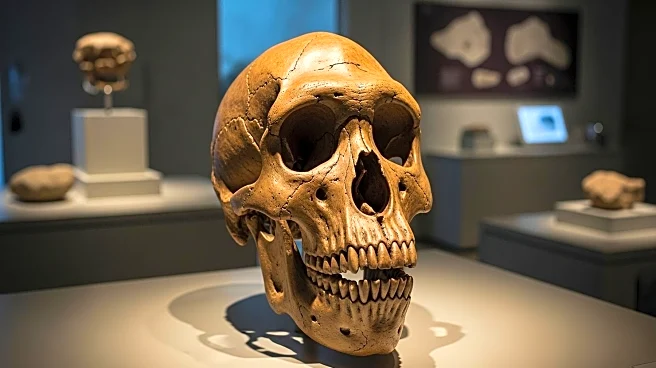What is the story about?
What's Happening?
A million-year-old skull found in China has been digitally reconstructed, revealing features that suggest Homo sapiens may have diverged from ancient ancestors 400,000 years earlier than previously thought. The study, published in Science, indicates that this divergence may have occurred in Asia rather than Africa. The skull, known as Yunxian 2, was initially thought to belong to Homo erectus, but modern reconstruction technologies have shown traits closer to Homo longi and Homo sapiens. This finding challenges existing theories about human evolution and suggests a more complex evolutionary timeline.
Why It's Important?
This discovery has significant implications for our understanding of human evolution. It suggests that the timeline and geographical origins of Homo sapiens may need to be reevaluated, potentially shifting the focus from Africa to Asia. The findings could lead to a reassessment of the 'Out of Africa' theory and prompt further research into the evolutionary history of humans. This could impact various fields, including anthropology, archaeology, and genetics, as scientists seek to understand the complexities of human ancestry and migration patterns.
















